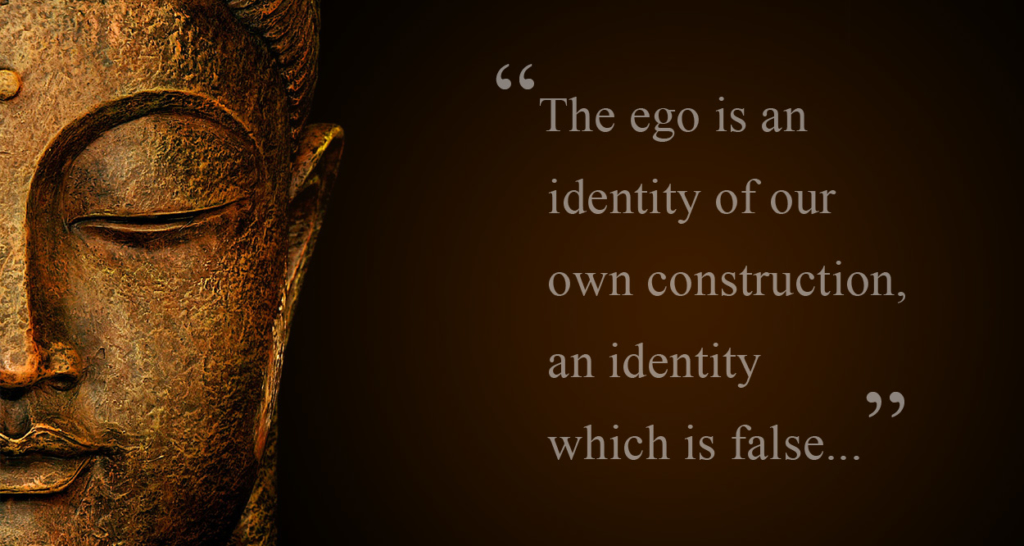by Dianne M. Kipp
Ego.
Not an easy term or topic to define. There are many explanations, dating back to Freud’s first theories of the id, ego and super ego. I’ll share here an example from Google:
“Your ego is your conscious mind, the part of your identity that you consider your “self.” If you say someone has “a big ego,” then you are saying he is too full of himself.”
I differ with the idea of ego being conscious mind, as our conscious mind is only approximately 10% of our brain’s processing power, while our unconscious mind is the other 90%, giving ego most control over our reactions and behaviors, with little conscious choice in time of need!
Define ego: the opinion that you have about yourself? Ego in a sentence. What is ego: your idea or opinion of yourself, especially your feeling of your own importance …
The following is the most comprehensive definition I was able to find in my Google search and can be found as noted below:
“The ego is an identity of our own construction, an identity which is false. If we take all the beliefs of what we are? beliefs about our personality, talents, and abilities? we have the structure of our ego. These talents, abilities and aspects of our personality will be attributes of our skills, but the mental construct of our ?self? is artificial. And while this description might make the ego seem like a static thing, it is not. Rather, it is an active and dynamic part of our personalities, playing an immense role in creating emotional drama in our lives.
When we have thoughts about our self that we agree with we construct a self-image…..”
What is the Ego? | Published by Gary van Warmerdam – February 26th, 2013
IN essence, our ego is being created from the time we are born, and perhaps while we are still in the womb. It is a collection of our life experiences both good and not so good, and is the basis of our beliefs, values, and opinions. It provides us with preconceived ideas, which in turn cause us to act or react in an automatic way. The interesting part of this is that all of it is happening unconsciously, and the ideas are often not based on facts, but on emotional storylines built by ego to ‘protect us from any harm’. As humans, we have a propensity to “want to be right.” We fear being wrong, which limits our opportunity to grow, if left unchecked. So ego or these fear – based protection mechanisms work diligently to arrange our lives to keep us “safe and secure” by having things go our own way. Makes life easier, right? Not so. It separates us from our true nature and from building meaningful relationships with others.
This protective barrier is similar to a cocoon. It allows us to stay in our comfort zone and is not likely to accommodate the needs and desires of others. We become self-righteous and demanding to maintain our albeit false sense of security. When something happens that causes us to notice how these patterns repeat frequently in our lives, we begin to doubt ourselves and can become very negative towards ourselves, hearing our negative self talk, blaming ourselves or others for ‘our great misfortune’ in life. Learning how to ‘see’ our ego and its devastating effect gives back our power to consciously assess fact from fiction in our thinking, and to make new choices in how we react, interact and/or behave.
Mindfulness and Ego
One benefit of practicing mindfulness is to discover and befriend our ego or discursive thoughts. Once aware of our ego we can ‘see’ how it interferes with our ability to ‘be’ our best self and we can learn to consciously choose our behavior, rather than operating from the emotionally charged auto pilot of ego.
My favorite Buddhist authors Pema Chodron, Chogyam Trungpa Rinpoche and others teach us how to achieve a more natural state of existence called ‘egolessness’. A state in which we let go of the familiar more comfortable cocoon of ‘me, my, I’ to experience ‘nothingness’, the space between our thoughts. As practicing Shambhala Buddhists, we learn how to detach from the emotional story (which is screaming loudly in our minds) and return our attention to the breath. By practicing meditation every day, we can train our minds to let go of thoughts as they appear, and we become able to detach from the emotional storyline more easily, in the heat of the moment of real life.
Finding our own state of egolessness grants space to explore beyond the protective cocoon in which we grow smaller and smaller in our ability to accept change and the differences of others. By widening our ‘zone’ we can experience more of life without ego predicting outcomes which may or may not occur. We tune-in to our authentic nature and find great joy in expanding our self-awareness. This process is often referred to as ‘waking up’, becoming conscious and making new choices.
Seeing ourselves and all beings as ‘same as me’ opens our hearts and minds to be more accepting and more compassionate towards ourselves and then we can extend it to others. We discover we are basically good, and we grow in our experience of that goodness when we extend it to others around us.
Ego’s Role in Happiness
As an ontological executive coach, life coach and career coach for the past 13 years, I have seen the amazing results achieved when these principles are applied. Unearthing our natural basic goodness becomes the foundation of upon which people change their lives. They decide to change how they “show up” in the world, and what they intend offer, rather than focus in what they can take. Whether I am working with a high level executive or a person wanting to change careers, the skills I impart for increasing effectiveness, satisfaction and success, are the same.
- How to increase self-awareness, discover their intrinsic good nature, and experience self-confidence
- How to “train their brains” to work FOR them, rather than against them
- How to discern the facts from the emotional “story”
Through the application of these concepts, clients gain insight and awareness, and can choose to let go of ego-based reactions and to live from their authentic basic goodness.
Why not continue “ego auto-pilot?”
Most of us live our lives without a clear understanding of what matters most, with no strategy for getting to where we want to go, because we are caught in the busy-ness of life, seeking the cocoon – safe and sterile as it is. There is usually a sense of “must be something better than this” but when we begin to explore what that might be, ego takes charge and either talks us into or out of something other than our best next step. Becoming mindful or more conscious of our inner conversations provides the canvas upon which we can truly design satisfaction and happiness into our lives. We look deeply to determine what is working and what is not, with regard to our satisfaction with life, and status of our self respect. It is not our responsibility to judge others or to expect them to change, but it is our responsibility to practice ‘maitri’ self-love, and to demonstrate our ‘basic goodness’ in the world.
First steps…
Asking ourselves how we want to be remembered helps shine a conscious light on how we are doing so far. If our intention is to be known as authentically kind, compassionate and caring we can notice if we have some ego-taming to accomplish. We might decide to awaken when we “look” for the facts, “see” how WE might be harming rather than helping ourselves and others, “tell the truth” BE honest with ourselves about what we can do to change it, then…”take action” to shift those behaviors causing the harm. We will then become more satisfied and less-ego driven.
Selfish vs Self-less
I am often asked, “isn’t loving one’s self being selfish?” Quite the opposite. Our unconscious construction of ego is Selfish. When we become self-aware and awake to our basic goodness or basic nature, we become self-less. We evolve spiritually to caring about more than just ourselves. We become interested in helping others, volunteering and offering our time, talents and treasures to a cause “for the greater good”. We begin using clear seeing, and apply the wisdom we have achieved, even when it requires more work or heavy lifting to change behaviors of the past. It involves wanting to make a personal connection with reality and enables us to trust ourselves, the world and all other beings without fear of being right or wrong. Trust in this way means we are willing to explore the possibilities acting from our basic nature might bring.
Ego-based emotional turmoil causes harm, sadness and self-doubt. Whether it appears as anger, jealousy, rage, or internal angst and confusion or feeling stuck, we suffer. Taking time to observe our particular brand of destructive ego gives us leverage over it. Nurturing a healthy self-esteem relies upon healthy self-care. Be willing to consciously construct a state of egolessness. Dare to investigate your darkest places in mindfulness practice, and begin to relax in the world.



